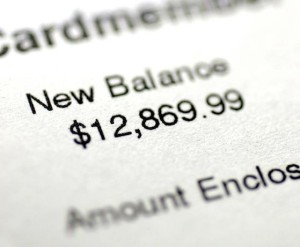There are very few people who don’t buy things on credit these days. This is the case even in countries like India which were traditionally averse to credit. Buying on credit allows people to pay back easily through EMIs. But improper handling of debt like the inability to repay the borrowed amount on time can land you in a debt trap. Proper planning of your expenses and checking your ability to repay the loans taken on time are some ways in which you can protect yourself from falling into a debt trap.
Below are some tips to protect yourself from falling into a debt trap:
Don’t Buy Things you Don’t Need
Buying unnecessary things can increase expenses beyond your income. People buy things like bigger cars and expensive accessories like handbags just because their neighbors or friends have them even when they can’t afford them. Such irresponsible spending can result you in buying on credit, which you can’t repay. Accumulated interests on the loans taken for buying unwanted things might land you in a debt trap. So, never buy things which are actually not needed by you.
Repay your Credit Card Dues on Time
Credit cards make it very convenient for people to make purchases without the need for carrying cash. But the purchases made through credit cards are treated as unsecured loans by banks and higher interest rates are levied on them. Interest rates on unpaid credit card dues can range between 20 to 35 percent, depending upon the country where you live. Non payment of credit card dues will attract higher interest rates which will keep accumulating over the time. Unless you have any financial emergency, repayment of your full credit card due is always recommended. For people who can’t control spending on their shopping trips, it is advisable not to hold any credit card at all.
If you want to make a high value purchase but can’t repay the amount immediately, it is better to go for a personal loan or consumer loans given by banks for the purchase of household items like Air Conditioners and Refrigerators.
Additional Tip: Don’t take premium credit cards with higher annual fees unless you need them. A card without any annual fees might be sufficient for many people.
Clear your High Interest Loans First
Always clear your high interest loans first. Loans with higher interest rates can quickly land you up in a debt trap as interest will be calculated on both the principal and accumulated interest. In case you have two unpaid loans, but can’t repay both, then its is better to repay the one with a lesser interest rate. For example, if you have unpaid credit card due which carries high interest rate and a vehicle loan with lesser interest rate, clear the credit card due first. Another way to clear high interest loans easily is to taking another loan with a low interest rate to clear the former. Since credit card dues attract higher interest rates, it is better to take a personal loan and clear the credit card due first.
Seek Debt Counselling
Many people fall in a debt trap just because they don’t know how to manage their debts. In case you land in such a situation, it is better to seek the advice of an expert debt counselor. Professional debt counselors give tips on clearing your debt by taking stock of your income, spending patterns, and the amount to be repaid. Debt counseling services are generally offered free of cost by NGOs and financial organizations. In some cases, the bank or credit company to whom you owe the money may themselves offer debt counselling and help you out. Many debt counselors also negotiate with the loan providers on your behalf regarding the repayment terms and conditions.
Be Careful About Special Loan Offers
Always be careful about special loan offers given be banks and credit card companies. They are generally intended at luring customers to spend during certain periods of time. A special loan offer will come with lower interest rates for certain period of time. Many customers will not be able to pay the complete amount by the end of offer time and fall into a debt trap.
Have a Monthly/Yearly Budget Regarding your Expenses
The sole reason for falling into a debt trap is excess expenditure over income. Failing to keep a balance between the income and expenditure can lead to over spending and accumulated loans. A simple way to avoid this situation is to have a monthly/yearly budget of your own. Always prepare your own budget after consulting with your family members. Any big expenses like cars and vacation trips should also be part of your budget. You personal budget should have details regarding your income, expenditure, and the savings. Once you have the amount you can spend in a month/year, try to stick to the amount consistently. Having a clear budget can help you in not exceeding your surplus income.









